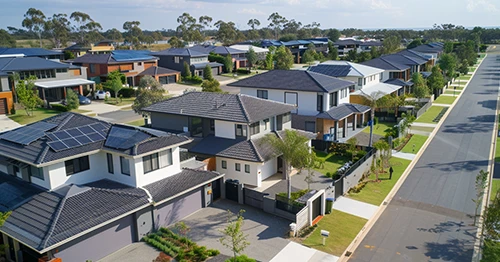Updated: 24 Dec, 2024
The Reserve Bank of Australia (RBA) has decided to leave the cash rate target unchanged at 4.35% during its September 2024 meeting.
Why Did The RBA Hold The Cash Rate In September 2024?
In its statement, the RBA noted that inflation, while down from its 2022 peak, persists above expectations. The trimmed mean measure of underlying inflation reached 3.9% over the year to the June quarter, slightly above expectations. While headline inflation showed some temporary relief due to federal and state cost-of-living measures, the central bank expects inflation to remain above the target range of 2-3% for some time, with no sustainable return to target levels until 2026.
The RBA emphasised that “Returning inflation to target within a reasonable timeframe remains the Board’s highest priority.” This clear focus on inflation management means that monetary policy will continue to remain restrictive until the board is confident that inflationary pressures have subsided.
Economic Uncertainty and Weak Growth
The decision to hold the cash rate steady also reflects ongoing economic uncertainty. Recent data confirmed weak GDP growth in the June quarter, with a slowdown in discretionary spending as households grappled with reduced disposable incomes and restrictive financial conditions. Despite this, broader consumer demand, bolstered by temporary residents such as students and tourists, has shown resilience.
Labour market conditions continue to be tight, with unemployment at 4.2%, though wage growth has softened and productivity remains low. The board acknowledged the risk that economic growth and consumption may recover more slowly than expected, leading to prolonged economic softness.
The RBA’s statement also pointed to global uncertainties, “The outlook for the Chinese economy has softened and this has been reflected in commodity prices. Geopolitical uncertainties remain pronounced.”
What Our Experts Said About The RBA’s Decision
Alan Hemmings, CEO of Home Loan Experts, observed that while other central banks, like the US Federal Reserve, have started cutting rates, Australia is trailing behind. “Commonwealth Bank has pushed back its expectation of a cut this year,” Hemmings added.
Jonathan Preston, Senior Mortgage Broker at Home Loan Experts, agreed that the RBA’s decision to hold rates was anticipated. “A hold was expected. We don’t have the data to support a rate cut yet,” he explained. “The challenge we have is the labour market is strong in Australia and inflation is still high, so the RBA is focused on getting inflation down.” He contrasted this with the US, where a weaker labour market and lower inflation allowed for a rate cut.
So, what does it mean for you?
For homeowners, the decision to keep the cash rate unchanged means mortgage costs will remain high, particularly for variable-rate borrowers, but locking in one of the recently lowered fixed rates was probably not a good idea. Hemmings explained, “No change for customers. We are seeing lenders lower their fixed rates, but unless someone comes out with a really sharp fixed-rate cut, there is no incentive to move.”
Preston added that while inflation is still a concern, rate cuts are likely over the next two years. “I note that the two-year Aussie bond pricing indicates cuts are very likely on the way,” he said, offering some optimism for relief in the medium term.
How Does The Cash Rate Affect My Interest Rate?
Lenders add a margin to the official cash rate to determine the variable interest rate they offer to customers. So if you have a variable interest rate, it will almost certainly go up with a cash rate increase.
You can use our repayment calculator to find out what your repayments should look like whenever the cash rate changes.




